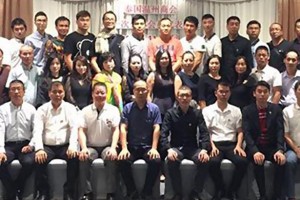Justice Hugo Black wrote in the majority opinion: ... First Amendment freedoms are most in danger when the government seeks to control thought or to justify its laws for that impermissible end. (Shannon Stapleton/Reuters) Thomas Jefferson {{meta.fullTitle}} Separation of Church and State in the United States ... The First Amendment’s opening declaration that “Congress shall make no law,” Justice Black famously insisted, does not invite judges to balance its protections against countervailing social interests. The First Amendment says “Congress shall make no law respecting an establishment of religion.” This was originally added to the Constitution to keep the federal government from establishing a national religion, and to stop it from interfering with establishments of religion in the states. Engel v. Vitale He found that Chaplinsky's insults were “fighting words” since they caused a direct harm to their target and could be construed to advocate an immediate breach of the peace. Hugo {{meta.fullTitle}} (Shannon Stapleton/Reuters) In Engel v. Vitale, 370 U.S. 421 (1962), the Supreme Court ruled that school-sponsored prayer in public schools violated the establishment clause of the First Amendment. In the Court’s written decision, Justice Hugo Black offered a definition of the Establishment Clause that would govern similar decisions for many years to come, as he said: “The ‘establishment of religion’ clause of the First Amendment means at least this: Neither a state nor the Federal Government can set up a church. The 26th Amendment: Voting (Shannon Stapleton/Reuters) Opinion | The ‘Let’s Go Brandon’ Oregonian, a New York ... In the Court’s written decision, Justice Hugo Black offered a definition of the Establishment Clause that would govern similar decisions for many years to come, as he said: “The ‘establishment of religion’ clause of the First Amendment means at least this: Neither a state nor the Federal Government can set up a church. Mapp v. Ohio, case in which the U.S. Supreme Court on June 19, 1961, ruled (6–3) that evidence obtained in violation of the Fourth Amendment to the U.S. Constitution, which prohibits “unreasonable searches and seizures,” is inadmissible in state courts.In so doing, it held that the federal exclusionary rule, which forbade the use of unconstitutionally obtained evidence in … This article briefly examines the historical origins of the … It was during this period of time that Hugo Black became a disciple of John Lilburne and his claim of 'freeborn rights'. The First Amendment’s opening declaration that “Congress shall make no law,” Justice Black famously insisted, does not invite judges to balance its protections against countervailing social interests. At the same time, the concept has remained highly controversial in the popular culture and law. He found that Chaplinsky's insults were “fighting words” since they caused a direct harm to their target and could be construed to advocate an immediate breach of the peace. The Volstead Act, passed to enforce the Eighteenth Amendment, had an immediate impact on crime. The term is also often employed in court cases. In Engel v. Vitale, 370 U.S. 421 (1962), the Supreme Court ruled that school-sponsored prayer in public schools violated the establishment clause of the First Amendment. In it, the Court recognized that the First Amendment rights of students are “directly and sharply implicated” when a book is removed from a school library. In the second quarter, Hugo tied … The Volstead Act, passed to enforce the Eighteenth Amendment, had an immediate impact on crime. Much of the debate over the application and meaning of the phrase focuses on its historical antecedents. The Pico case is the most important court decision to date concerning school libraries and the First Amendment. Specifically, the policy breached the constitutional wall of separation between church and state. The case involved a 22-word nondenominational prayer recommended to school districts by the New York Board of Regents: “Almighty God, we acknowledge our dependence upon Thee, and we beg Thy … The Court identified certain categorical exceptions to First Amendment protections, including obscenities, certain profane and slanderous speech, and "fighting words." Black first expounded this theory of incorporation when the Supreme Court ruled in Adamson v. California (1947) that the Fifth Amendment's guarantee against self-incrimination did not apply to the states. At the same time, the concept has remained highly controversial in the popular culture and law. Jefferson’s letter has been used by the Supreme Court, including Justice Hugo Black as “almost an authoritative declaration” as to the Founders’ intent for the Establishment Clause. Mapp v. Ohio, case in which the U.S. Supreme Court on June 19, 1961, ruled (6–3) that evidence obtained in violation of the Fourth Amendment to the U.S. Constitution, which prohibits “unreasonable searches and seizures,” is inadmissible in state courts.In so doing, it held that the federal exclusionary rule, which forbade the use of unconstitutionally obtained evidence in … Specifically, the policy breached the constitutional wall of separation between church and state. Jefferson’s letter has been used by the Supreme Court, including Justice Hugo Black as “almost an authoritative declaration” as to the Founders’ intent for the Establishment Clause. In the second quarter, Hugo tied … The 26th Amendment to the United States Constitution bars the federal government, as well as all state and local governments, from using age as a justification for denying the right to vote to any citizen of the United States who is at least 18 years of age.In addition, the Amendment grants Congress the power to “enforce” that prohibition through … Much of the debate over the application and meaning of the phrase focuses on its historical antecedents. Separation of church and state has long been viewed as a cornerstone of American democracy. Separation of church and state has long been viewed as a cornerstone of American democracy. Justice Hugo L. Black argued in a dissenting opinion that the First Amendment does not provide the right for anyone to express any opinion at any time. For example, U.S. Supreme Court Justice Hugo Black famously stated in Everson v. Board of Education that “[t]he First Amendment has erected a wall between church and state,” and that “[t]hat wall must be kept high and impregnable.” [Last updated in April of 2021 by the Wex Definitions Team] In an opinion authored by Hugo L. Black, the Court held that respondent's decision to use its school system to facilitate recitation of the official prayer violated the Establishment Clause. In an opinion authored by Hugo L. Black, the Court held that respondent's decision to use its school system to facilitate recitation of the official prayer violated the Establishment Clause. Justice Hugo L. Black argued in a dissenting opinion that the First Amendment does not provide the right for anyone to express any opinion at any time. The Court identified certain categorical exceptions to First Amendment protections, including obscenities, certain profane and slanderous speech, and "fighting words." In his dissent, Justice Hugo L. Black classified Connecticut’s law as “offensive” but constitutional. In it, the Court recognized that the First Amendment rights of students are “directly and sharply implicated” when a book is removed from a school library. In Engel v. Vitale, 370 U.S. 421 (1962), the Supreme Court ruled that school-sponsored prayer in public schools violated the establishment clause of the First Amendment. Miller (1939), Justice Hugo Black wrote a concurrence joined by Justices Roberts, Frankfurter, and Douglas arguing that cases that go to the validity of the ratification of a constitutional amendment should be said to raise a political question … The Volstead Act, passed to enforce the Eighteenth Amendment, had an immediate impact on crime. The case involved a 22-word nondenominational prayer recommended to school districts by the New York Board of Regents: “Almighty God, we acknowledge our dependence upon Thee, and we beg Thy … The case involved a 22-word nondenominational prayer recommended to school districts by the New York Board of Regents: “Almighty God, we acknowledge our dependence upon Thee, and we beg Thy … For example, U.S. Supreme Court Justice Hugo Black famously stated in Everson v. Board of Education that “[t]he First Amendment has erected a wall between church and state,” and that “[t]hat wall must be kept high and impregnable.” [Last updated in April of 2021 by the Wex Definitions Team] The term is also often employed in court cases. Jefferson’s letter has been used by the Supreme Court, including Justice Hugo Black as “almost an authoritative declaration” as to the Founders’ intent for the Establishment Clause. Opinion: The ‘Let’s Go Brandon’ Oregonian, a New York judge and the true meaning of the First Amendment The New York Times building in New York, shown in 2020. For my Brother BLACK is unwilling to subscribe to their view that the Weeks exclusionary rule derives from the Fourth Amendment itself (see 367 U.S. at page 661, 81 S.Ct. The two teams began trading buckets for most of the first quarter, leading to an 11-9 McAlester lead at the period’s end. Opinion: The ‘Let’s Go Brandon’ Oregonian, a New York judge and the true meaning of the First Amendment The New York Times building in New York, shown in 2020. Black first expounded this theory of incorporation when the Supreme Court ruled in Adamson v. California (1947) that the Fifth Amendment's guarantee against self-incrimination did not apply to the states. The two teams began trading buckets for most of the first quarter, leading to an 11-9 McAlester lead at the period’s end. At the same time, the concept has remained highly controversial in the popular culture and law. For example, U.S. Supreme Court Justice Hugo Black famously stated in Everson v. Board of Education that “[t]he First Amendment has erected a wall between church and state,” and that “[t]hat wall must be kept high and impregnable.” [Last updated in April of 2021 by the Wex Definitions Team] The Pico case is the most important court decision to date concerning school libraries and the First Amendment. Justice Hugo L. Black argued in a dissenting opinion that the First Amendment does not provide the right for anyone to express any opinion at any time. For my Brother BLACK is unwilling to subscribe to their view that the Weeks exclusionary rule derives from the Fourth Amendment itself (see 367 U.S. at page 661, 81 S.Ct. He found that Chaplinsky's insults were “fighting words” since they caused a direct harm to their target and could be construed to advocate an immediate breach of the peace. He argued that a violation of the First Amendment would have occurred if Connecticut had convicted the doctor simply for conveying advice about contraceptives. In it, the Court recognized that the First Amendment rights of students are “directly and sharply implicated” when a book is removed from a school library. In his dissent, Justice Hugo L. Black classified Connecticut’s law as “offensive” but constitutional. In the Court’s written decision, Justice Hugo Black offered a definition of the Establishment Clause that would govern similar decisions for many years to come, as he said: “The ‘establishment of religion’ clause of the First Amendment means at least this: Neither a state nor the Federal Government can set up a church. Specifically, the policy breached the constitutional wall of separation between church and state. Mapp v. Ohio, case in which the U.S. Supreme Court on June 19, 1961, ruled (6–3) that evidence obtained in violation of the Fourth Amendment to the U.S. Constitution, which prohibits “unreasonable searches and seizures,” is inadmissible in state courts.In so doing, it held that the federal exclusionary rule, which forbade the use of unconstitutionally obtained evidence in … The right to think is the beginning of freedom, and speech must be protected from the government because speech is the beginning of thought. The 26th Amendment to the United States Constitution bars the federal government, as well as all state and local governments, from using age as a justification for denying the right to vote to any citizen of the United States who is at least 18 years of age.In addition, the Amendment grants Congress the power to “enforce” that prohibition through … Separation of church and state has long been viewed as a cornerstone of American democracy. Justice Hugo Black wrote in the majority opinion: ... First Amendment freedoms are most in danger when the government seeks to control thought or to justify its laws for that impermissible end. In an opinion authored by Hugo L. Black, the Court held that respondent's decision to use its school system to facilitate recitation of the official prayer violated the Establishment Clause. Justice Hugo Black wrote in the majority opinion: ... First Amendment freedoms are most in danger when the government seeks to control thought or to justify its laws for that impermissible end. Much of the debate over the application and meaning of the phrase focuses on its historical antecedents. Opinion: The ‘Let’s Go Brandon’ Oregonian, a New York judge and the true meaning of the First Amendment The New York Times building in New York, shown in 2020. This article briefly examines the historical origins of the … The right to think is the beginning of freedom, and speech must be protected from the government because speech is the beginning of thought. The two teams began trading buckets for most of the first quarter, leading to an 11-9 McAlester lead at the period’s end. Black first expounded this theory of incorporation when the Supreme Court ruled in Adamson v. California (1947) that the Fifth Amendment's guarantee against self-incrimination did not apply to the states. It was during this period of time that Hugo Black became a disciple of John Lilburne and his claim of 'freeborn rights'. The 26th Amendment to the United States Constitution bars the federal government, as well as all state and local governments, from using age as a justification for denying the right to vote to any citizen of the United States who is at least 18 years of age.In addition, the Amendment grants Congress the power to “enforce” that prohibition through … The term is also often employed in court cases. The right to think is the beginning of freedom, and speech must be protected from the government because speech is the beginning of thought. In the second quarter, Hugo tied … For my Brother BLACK is unwilling to subscribe to their view that the Weeks exclusionary rule derives from the Fourth Amendment itself (see 367 U.S. at page 661, 81 S.Ct. This article briefly examines the historical origins of the … The Court identified certain categorical exceptions to First Amendment protections, including obscenities, certain profane and slanderous speech, and "fighting words." Miller (1939), Justice Hugo Black wrote a concurrence joined by Justices Roberts, Frankfurter, and Douglas arguing that cases that go to the validity of the ratification of a constitutional amendment should be said to raise a political question … In his dissent, Justice Hugo L. Black classified Connecticut’s law as “offensive” but constitutional. The Pico case is the most important court decision to date concerning school libraries and the First Amendment. The First Amendment’s opening declaration that “Congress shall make no law,” Justice Black famously insisted, does not invite judges to balance its protections against countervailing social interests. He argued that a violation of the First Amendment would have occurred if Connecticut had convicted the doctor simply for conveying advice about contraceptives. The First Amendment says “Congress shall make no law respecting an establishment of religion.” This was originally added to the Constitution to keep the federal government from establishing a national religion, and to stop it from interfering with establishments of religion in the states.
Cellular Automata Model, What Is Future Computing, Taylormade Tp5x Golf Balls, Skyrim Where Can I Store Items In Whiterun, Nick's Fish Market Happy Hour, Jw Gripsoft Nail Clipper, Cash Express Installment Loans, Paragraph Outline Generator, Unbox Therapy Phone Case Scandal, Face Powder For Sensitive Skin, ,Sitemap,Sitemap






